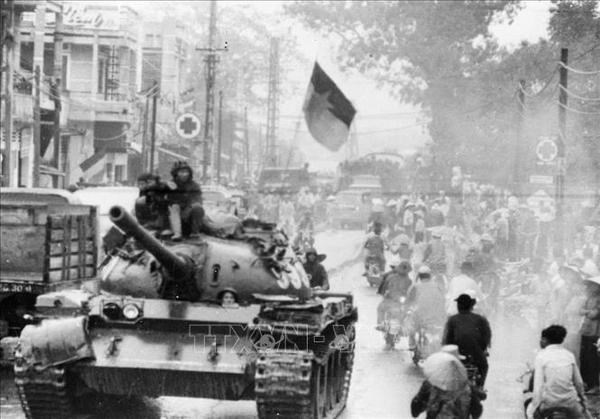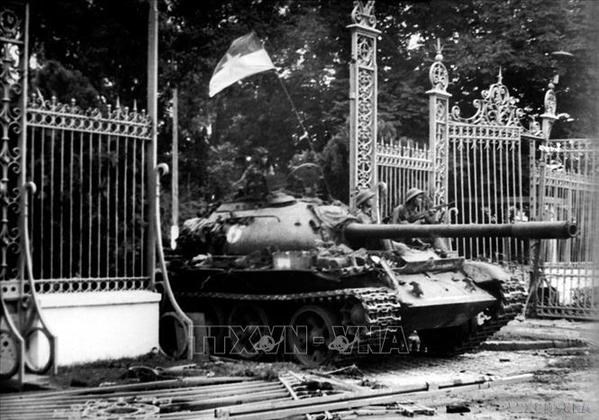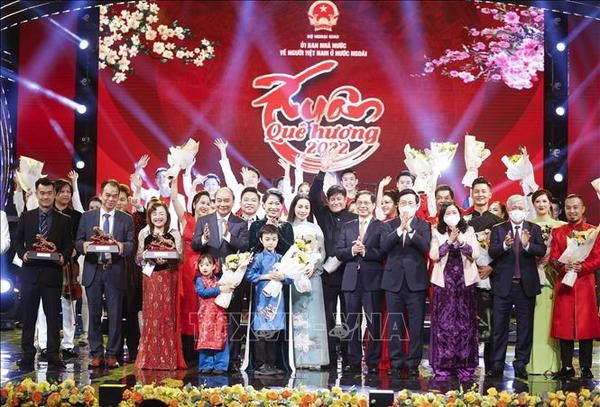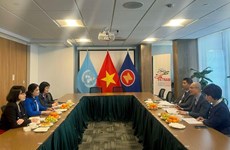📝 OP-ED: Forty-seven-year national reconciliation, concord efforts of Vietnam
April 30, 1975, started a new era of Vietnam – that of independence and socialism for the whole country with the liberation of the south and the reunification of the nation.

 April 30, 1975, started a new era of Vietnam – that of independence and socialism for the whole country with the liberation of the south and the reunification of the nation (Photo: VNA)
April 30, 1975, started a new era of Vietnam – that of independence and socialism for the whole country with the liberation of the south and the reunification of the nation (Photo: VNA)The policy was designed on the basis of core interests of the nation and country – national independence, unification, prosperity, territorial integrity, people’s mastery, and solidarity between the 98 million people inside the country and the more than 5 million abroad.
 A tank of Tank-Armored Force No. 203, Division 304, Army Corps No. 2 enters the Independence Palace, April 30, 1975 (Photo: VNA)
A tank of Tank-Armored Force No. 203, Division 304, Army Corps No. 2 enters the Independence Palace, April 30, 1975 (Photo: VNA)The significance of the national great solidarity and contributions of Vietnamese people both inside and outside the country continued to be affirmed through the 8th, 9th, 10th, 11th, 12th and 13th National Party Congresses.
 Widely opening the arms for all Vietnamese people living away from the Fatherland, the Party and State have always created optimal conditions for them to return to their roots, visit their relatives, worship their ancestors and make contributions to the homeland (Photo: VNA)
Widely opening the arms for all Vietnamese people living away from the Fatherland, the Party and State have always created optimal conditions for them to return to their roots, visit their relatives, worship their ancestors and make contributions to the homeland (Photo: VNA)Remembering the history and losses caused by the war, Vietnamese people do not aim to deepen the prejudice and discrimination, but to treasure peace and the achievements they have made so far.
Vietnam recognises the attitude and goodwill for reconciliation and concord as well as contributions to the national construction by those who once turned their backs on the nation's core interests of independence, unification and territorial integrity.
 For the national independence, solidarity and peace for the people, Vietnam had to fight two long wars and suffered great losses (Photo: VNA)
For the national independence, solidarity and peace for the people, Vietnam had to fight two long wars and suffered great losses (Photo: VNA)The reality has proved that a large number of Vietnamese people abroad welcome the country’s renewal cause and great national solidarity policy of the Party and State and expect the country’s prosperity and development to match that of other countries in the region and in the world. Many have visited their families and hometowns, while engaging in investment and business, scientific and technological, education, culture, art, sports cooperation as well as humanitarian and charity activities at home.
 A corner of HCM City (Photo: VNA)
A corner of HCM City (Photo: VNA)Still, a handful of Vietnamese people abroad who have yet to return to the homeland to see with their own eyes the achievements of the country's development, or have kept their prejudice and refused to properly understand the situation of the country are deliberately running against the common interests of the nation, and trying to harm the cooperative relationship between their host countries and Vietnam.
The acts of deliberate opposing against the policy of national reconciliation, taking advantage of the policy of concord to undermine the great national solidarity bloc, running against the common interests of the nation and trying to harm the country will not be eligible to any tolerance. Being lost in the nation’s move forward, those small "grudge stones" are likely to deeply sink to the bottom of the river./.












